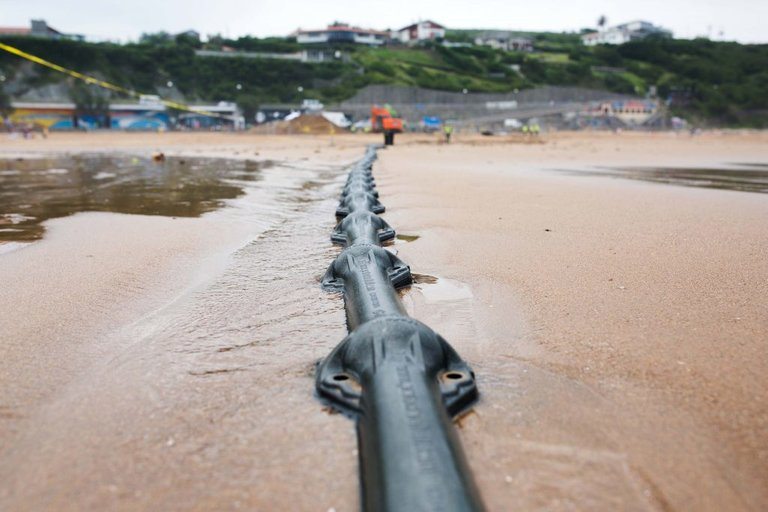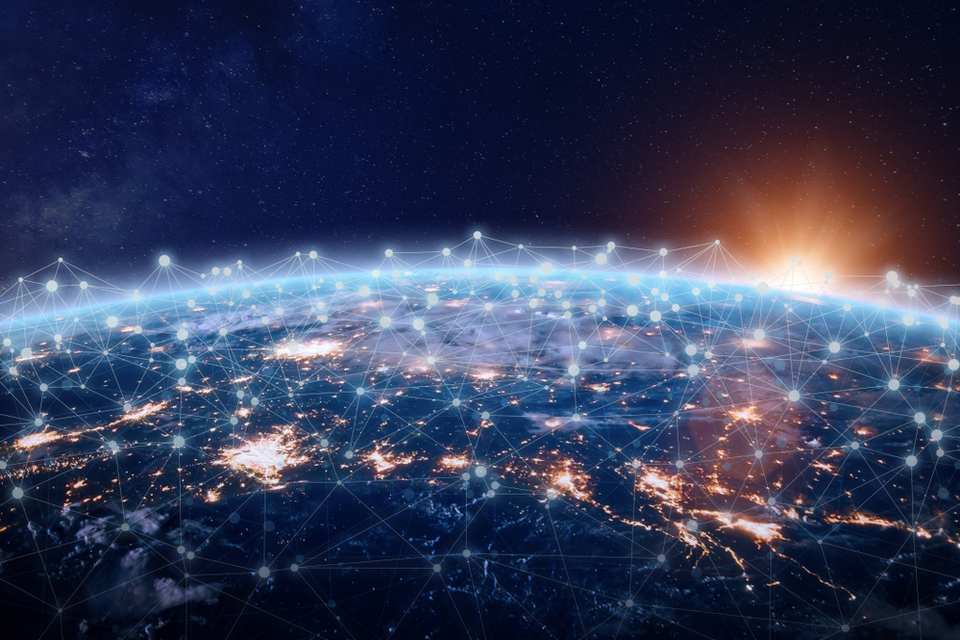More than a year after tech titans Facebook and Microsoft announced that they’re teaming up to lay a massive undersea Internet cable across the Atlantic Ocean, the two companies finally confirmed the completion of the said project.
Dubbed as Marea, the massive undersea Internet cable runs from Virginia Beach, Virginia, to Bilbao, Spain. It weighs approximately 10.25 million pounds (4.6 million kg), spans over 4,000 miles or 6,437 kilometers, and is currently lying at a depth of more than 17,000 feet below the ocean’s surface.
In a blog post published by Microsoft Cloud Infrastructure & Operations Corporate Vice President Suresh Kumar, he said:
“At more than 4,000 miles (6,600 kilometers) long and almost 10.25 million pounds (4.65 million kilograms) — or about the weight of 34 blue whales — the Marea cable is a feat of engineering, collaboration, and innovation.”
Kumar further added that the undersea Internet cable would have the capability to transmit up to 160 terabits of data per second.
“That’s more than 16 million times faster than the average home internet connection, making it capable of streaming 71 million high-definition videos simultaneously.”
Laying of the Marea cable started in August 2016, making its completion this year nearly three times faster than any cable laying project today. According to Kumar, Marea is a powerful example of the significant role that the private sector plays when it comes to connecting the world.
#Marea undersea Internet cable system to improve cross-border data flows!Click To TweetFurthermore, Marea is expected to set the new standard for subsea cables because it was specifically designed to meet the world’s current Internet demand and is expected to evolve with the progress the future holds.
Marea: A Powerful Undersea Internet Cable Project
The Marea undersea Internet cable was a joint project between Facebook, Microsoft, and the global telecommunications infrastructure company Telxius. Its primary goal is to upgrade the global internet infrastructure today to meet the growing demand for faster and more reliable internet and cloud services.
Apparently, Marea’s landing point in Bilbao paved a convenient path to network hubs in Africa, the Middle East, and Asia. Brad Smith, Microsoft President, was quoted as saying:
“Marea comes at a critical time. Submarine cables in the Atlantic already carry 55 percent more data than trans-Pacific routes and 40 percent more data than between the U.S. and Latin America. There is no question that the demand for data flows across the Atlantic will continue to increase, and Marea will provide a critical connection for the United States, Spain, and beyond.”
In a separate statement, Facebook’s Vice President of Network Engineering Najam Ahmad said that the Marea undersea Internet cable’s design would allow the company to adapt to the future needs of its data-intensive services. It also serves the company’s goal of helping Facebook users have deep connections and shared experiences.

“Obviously, connectivity is one part of achieving that goal. Marea will help us connect people more quickly and efficiently. More broadly, robust connectivity can help a wide variety of people build relationships and collaborate between countries and across cultures.”
Marea will be a major player in enabling cross-border data flows between the United States and Europe. This is a very critical route as transatlantic data flows are expected to increase in demand as more people are getting inclined to use mobile devices to gain access to the Internet.
In a report published by McKinsey Global Institute (MGI), Global online traffic across borders grew 18-fold between 2005 and 2012 and could increase eight-fold more by 2025.
Officials in Northern Virginia, considered as one of the main internet data center hubs in the world, also believe that the undersea Internet cable will help diversify the city’s economy.
“Marea is allowing us to become a digital port, not just a port city,” says Warren Harris, director of the Virginia Beach Development Authority. “And the fact that Microsoft is a partner in the cable has given us a level of validation to talk about the benefits of what Virginia Beach can mean for companies. I’m extremely excited.”
With the passing of time, more tech companies are starting to move into infrastructure space and invest in cable laying projects themselves. Google also partnered with Facebook in building a transpacific undersea Internet cable system that was estimated to be finished in 2018.
Early this year, the search engine giant also announced its investment in a subsea cable system that will connect Singapore to Perth and Sydney in Australia, with a supposed branch in Jakarta, Indonesia.
Now, with the completion of Marea, Facebook and Microsoft is expected to have more control over the massive amount of data they need to move information around the world. Some of the two companies’ products that will benefit from the improved data and cloud services include Microsoft Office 365, Azure, Xbox Live, Facebook, Instagram, and Whatsapp.



















Comments (0)
Most Recent